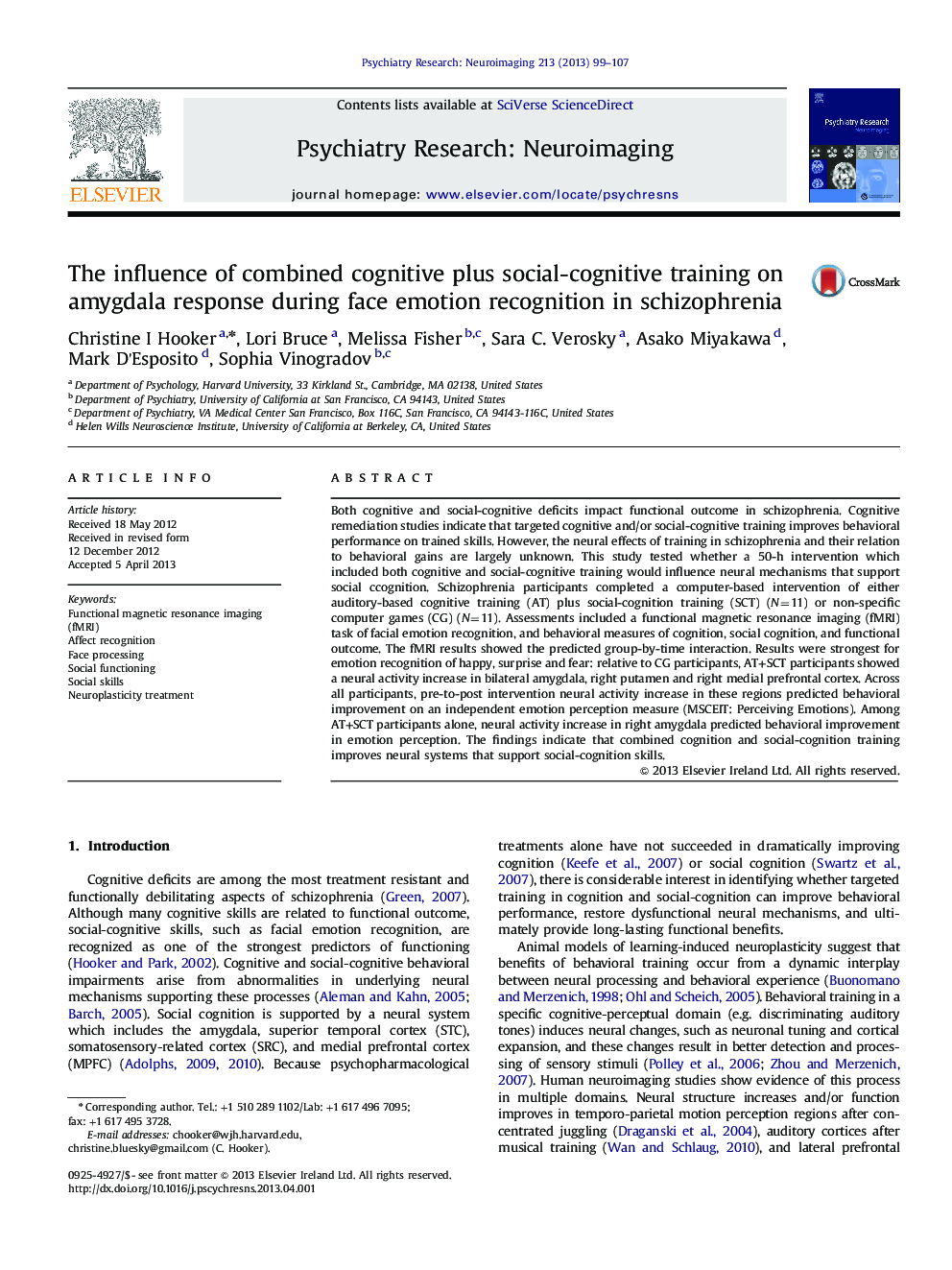| Article ID | Journal | Published Year | Pages | File Type |
|---|---|---|---|---|
| 335339 | Psychiatry Research: Neuroimaging | 2013 | 9 Pages |
Both cognitive and social-cognitive deficits impact functional outcome in schizophrenia. Cognitive remediation studies indicate that targeted cognitive and/or social-cognitive training improves behavioral performance on trained skills. However, the neural effects of training in schizophrenia and their relation to behavioral gains are largely unknown. This study tested whether a 50-h intervention which included both cognitive and social-cognitive training would influence neural mechanisms that support social ccognition. Schizophrenia participants completed a computer-based intervention of either auditory-based cognitive training (AT) plus social-cognition training (SCT) (N=11) or non-specific computer games (CG) (N=11). Assessments included a functional magnetic resonance imaging (fMRI) task of facial emotion recognition, and behavioral measures of cognition, social cognition, and functional outcome. The fMRI results showed the predicted group-by-time interaction. Results were strongest for emotion recognition of happy, surprise and fear: relative to CG participants, AT+SCT participants showed a neural activity increase in bilateral amygdala, right putamen and right medial prefrontal cortex. Across all participants, pre-to-post intervention neural activity increase in these regions predicted behavioral improvement on an independent emotion perception measure (MSCEIT: Perceiving Emotions). Among AT+SCT participants alone, neural activity increase in right amygdala predicted behavioral improvement in emotion perception. The findings indicate that combined cognition and social-cognition training improves neural systems that support social-cognition skills.
